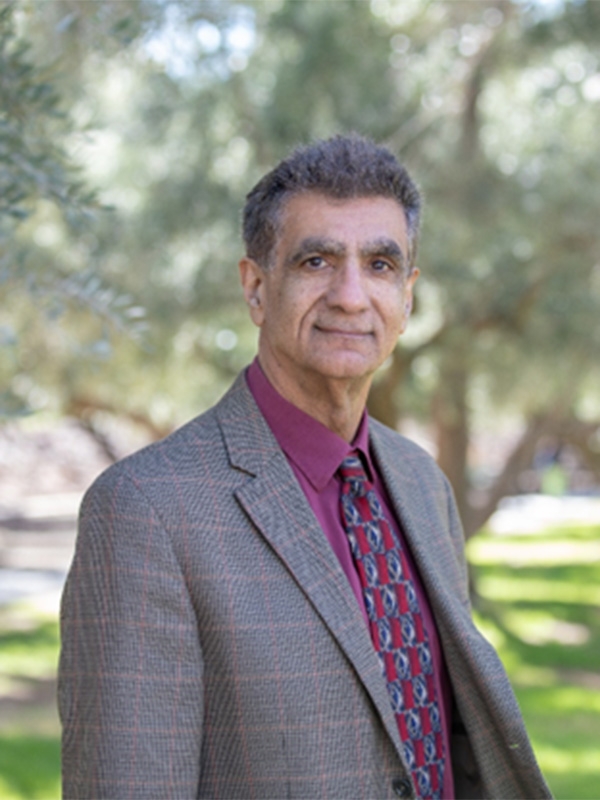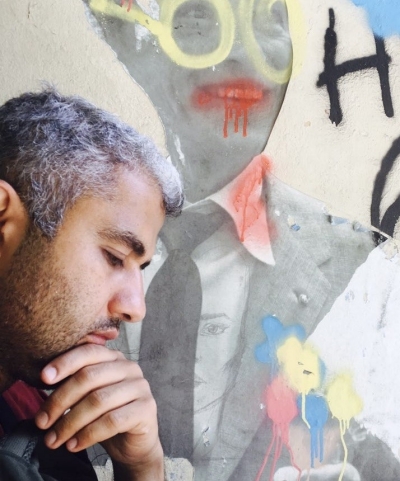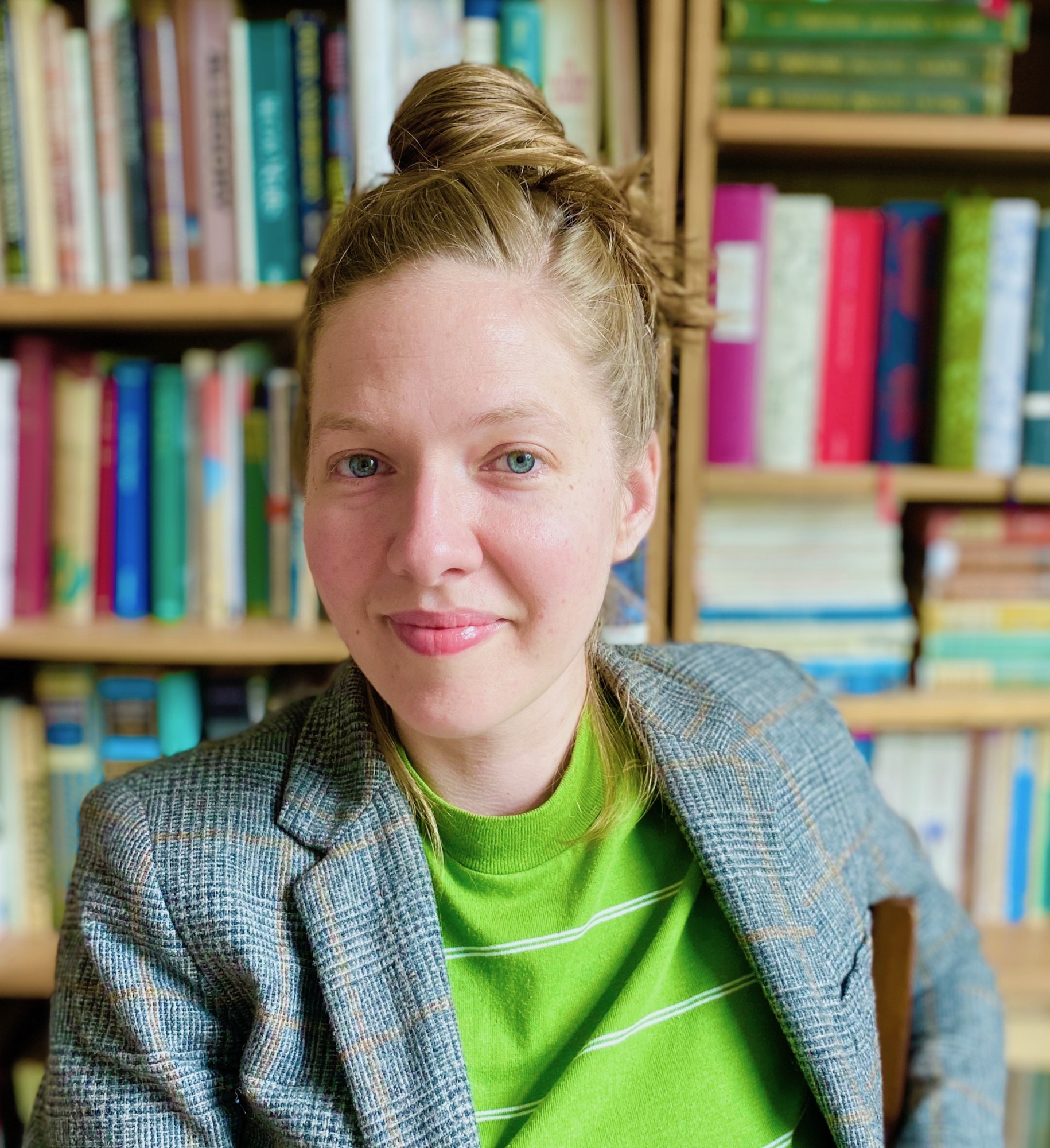The University of Oklahoma’s Farzaneh Family Center for Iranian and Persian Gulf Studies is pleased to announce a competition for the Jafar and Shokoh Farzaneh Prize for Best Article on Persian Literature.
This prize will be awarded to the best published article on any topic relating to Persian literature. The winner will also be invited to present a public lecture at the University of Oklahoma and to serve on the award selection committee for the following year. To be eligible for consideration, articles or book chapters must have been published in English or Persian in scholarly, peer-reviewed journals or edited volumes. Publications must be on Persian literature specifically and not other related fields.
*Deadline: The deadline has passed for this award. The next award will be given in spring 2026.
For any questions about this competition, please email Jennifer Grover at jgrover@ou.edu.
Award Committee:

First Place - $2000 Award: Kamran Talattof
"In Search of Religion and Dantean Moments in 'The Story of Mahan'"
Kamran Talattof compares the works of Nizami and Dante to provocative and exciting effect in this book chapter. His essay challenges the notion that Nizami's poems are primarily intended to promote Islam or Sufism. He argues that Nizami's use of religious motifs serves as allegorical constructs rather than direct expressions of religiosity. While both poets share an interest in mystical love and devotion, Talattof's examination reveals more differences than similarities between their works. Notably, Nizami draws on religious themes for literary purposes, whereas Dante's 'Divine Comedy' serves a different purpose- to aid the Bible. Talattof's profound understanding of classical Persian poetry shines through, making his detailed comparison between Nizami and Dante a valuable contribution to ongoing scholarly discourse and inviting critical engagement with literature, religion, and culture.
Second Place - $1000 Award: Farshad Sonboldel
"Margins, Resistance and Transformation in Classical Persian Poetry: Yaghma Jandaqi as Precursive Kernel of the Constitutional Revolution Poetry"
Farshad Sonboldel's remarkable article delves into the understudied substrata of the revolutionary poetry of the Iranian Constitutional Revolution. Sonboldel spotlights the oeuvre of Yaghma Jandaqi as the epitome of poetry informed by the voices of the subaltern, which begins to subvert the hierarchical poetics and politics of the 19th century, paving the way for nascent innovations in Persian poetry. The article's interdisciplinary approach and scholarly rigor promise to broaden Persian literary criticism's field of vision, particularly regarding the modernization and reformulation of poetic forms.
Third Place - $500 Award: Parisa Salehi & Ghodratollah Taheri
"Introducing 'Historical Literature' as One of the Persian Literary Genres by Relying on the Histories of Bal'ami, Beyhaqi, Jahangosha, and Wasaf"
Parisa Salehi and Ghodratollah Taheri's insightful article proposes a distinct genre in Persian literature, termed 'historical literature.' By re-examining the eminent histories of Bal'ami, Beyhaqi, Jahangosha Jovini, and Wasaf, the article highlights the remarkable interplay of historiographical and literary qualities in these texts. The authors compellingly argue for recognizing 'historical literature' as distinguishable from other genres, thoroughly analyzing its defining characteristics.
Normally, the Farzaneh Family Center awards only one prize. However, this year our judges determined that two additional articles merited recognition. Their decision was based on a careful evaluation of over 50 submissions. Our immense gratitude to our Prize Committee Members
Chair: Mina Raminsabet
Visiting Scholar & Professor of Persian Language and Literature, University of Oklahoma
Vice Chair: Marjan Seirafi-Pour
Farzaneh Family Persian Language Instructor, Director of Persian Digital Library, University of Oklahoma
Past-Prize Winner: Vahid Davar
Persian Poet, Researcher in the field of Persian Literature, University of St. Andrew

2022 winner: Vahid Davar
For: "Relation to Relating: A Sketch for the New Epic"
Vahid Davar is a PhD researcher in Persian Studies at the University of St. Andrews. His collection of poetry, Sefr-e Safar (The Book of Journeys), was highly commended for the 2019 Ahamad Shamlou Prize. His second book, Ahd-e Nassim (Nassim's Testament), forms part of the British Museum exhibit, "Atlas of the World", 2022.
The prize committee, composed of Dr. Alexander Jabbari and Dr Jane Mikkelson, wrote about Mr. Davar's essay: Davar's essay is an exciting, original exploration of Persian literary futures. Drawing on a wide array of theoretical and literary sources — Jorge Luis Borges, the Caribbean critic Édouard Glissant, Ferdowi's Shahnameh, recent writings by Abbas Abdi — Davar's work of creative criticism argues urgently and eloquently for the need to reorient the Persian literary imagination around places, dialects and literatures that have been historically considered peripheral or marginal. Taking the island of Qeshm as a possible node of connection, Davar argues that the Persian canon can and should be reimagined from the "periphery," where the point is not to reassert a singular, monolithic, nation-bounded culture but to discover and nurture a vibrant, Glissant-esque poetics of relation that reaches outside of itself and creates new cosmopolitan possibilities for Persian literary imagination.

2021 winner: Dr. Jane Mikkelson
For: “Flights of Imagination: Avicenna’s Phoenix (ʿAnqā) and Bedil’s Figuration for the Lyric Self," Journal of South Asian Intellectual History 2 (2019): 28-72.
Jane Mikkelson is a postdoctoral fellow at the University of Virginia (College Fellows). In 2019, she received a joint Ph.D. from the University of Chicago in South Asian Languages and Civilizations and Near Eastern Languages and Civilizations. Her research focuses on comparative literature, Persian literature and Islamic thought, translation studies, and theories of literature, with a particular interest in comparative projects that connect early modern Near Eastern, South Asian and European literary and religious cultures. Her work has been published in Comparative Studies of South Asia, Africa, and the Middle East, University of Toronto Quarterly, Journal of South Asian Intellectual History, Modern Philology and elsewhere. Her first book project, Steadfast Imagining, examines practices of lyric meditation in the early modern Persianate world, situating these practices alongside premodern theories of literature and of the imagination.

The Farzaneh family has been long-time supporters of the University of Oklahoma and the College of International Studies. The Farzaneh Family’s gift to the University of Oklahoma supports Iranian and Persian Gulf Studies at OU and includes scholarships to OU students studying the Persian language and studying abroad.
Eligibility Criteria:
For any questions about this competition, please email Jennifer Grover at jgrover@ou.edu.
The OU Iranian Studies Best Paper Award is awarding a $500 prize for the best undergraduate research paper on a topic in the area of Iranian Studies. Papers must:
This award is open to University of Oklahoma students only.
Questions regarding the prize should be directed to Manata Hashemi at hashemi@ou.edu or Afshin Marashi at amarashi@ou.edu.
Prize: $500
Deadline: May 7, 2026
Previous Awardees:
2025:
2024: Maksim Zakharov, "Iranian Cinema as a Tool Against the Islamic Republic"
2023:
2022: Andrew Wall, "Feminine Beauty in Iranian Cinema: How Filmmakers in a Censored Industry Represent the Problems Women Face in Iran through Art"
2021: Gabriela Ramirez-Perez, “The Periphery Takes Center Stage: Behind the Scenes in the Medieval Islamic World”
2020: Alyssa Wiley, "The Tudeh Party in Iran from 1941-1953: A Tool of the Soviet Union or a Natural Evolution of Iranian Politics"
2019: Lindsey Eisenmann, "American Colonialism and the Illusion of Power in US-Iranian Relations"
2018: Adam Oberlitner, "Queer Theology: Theological, Theocratic, and Secular Influences on Iran's Relationship with Transgender Bodies"
2017: Jared Johnson, for his paper titled, "Iran's Others through Cinema."